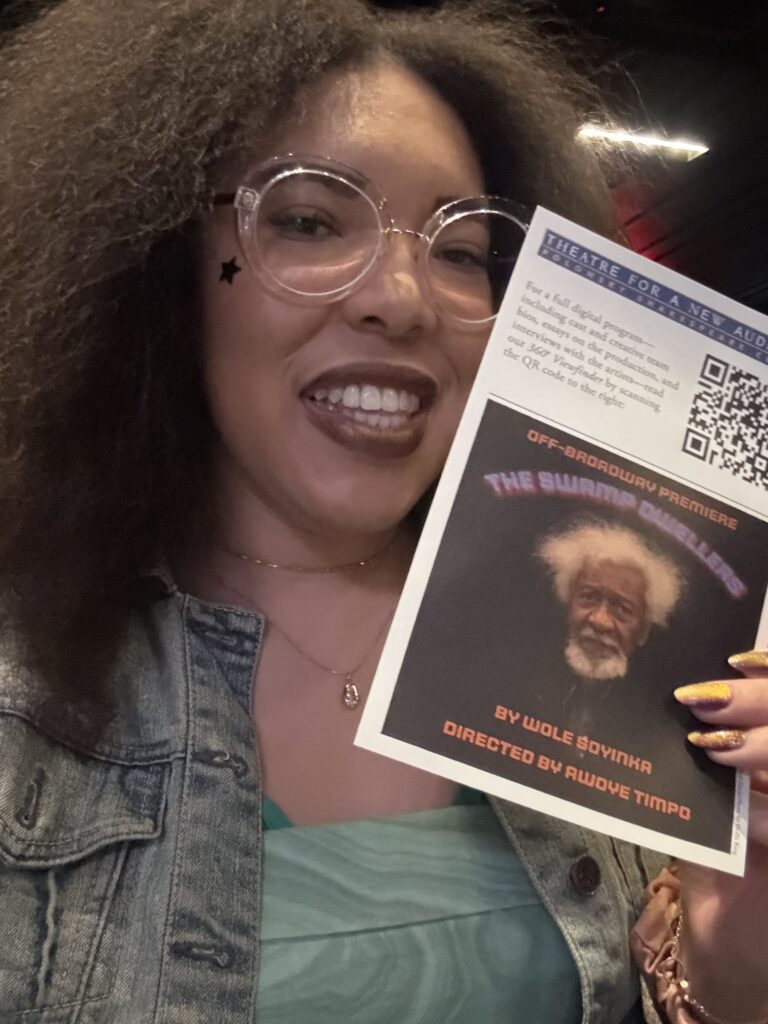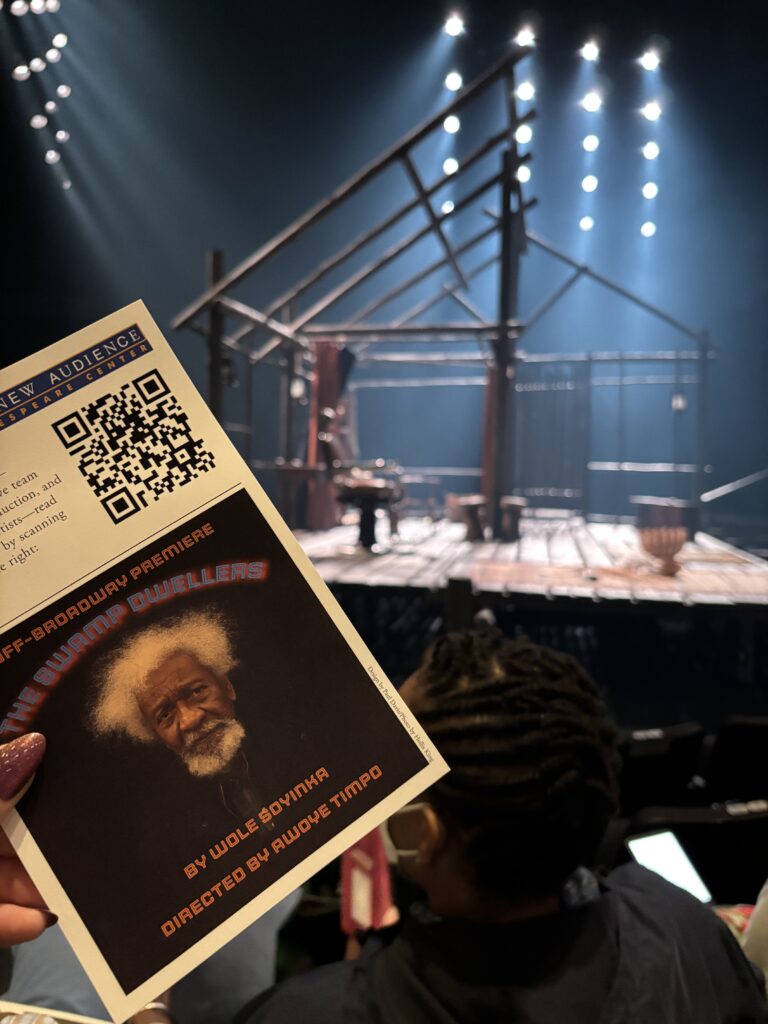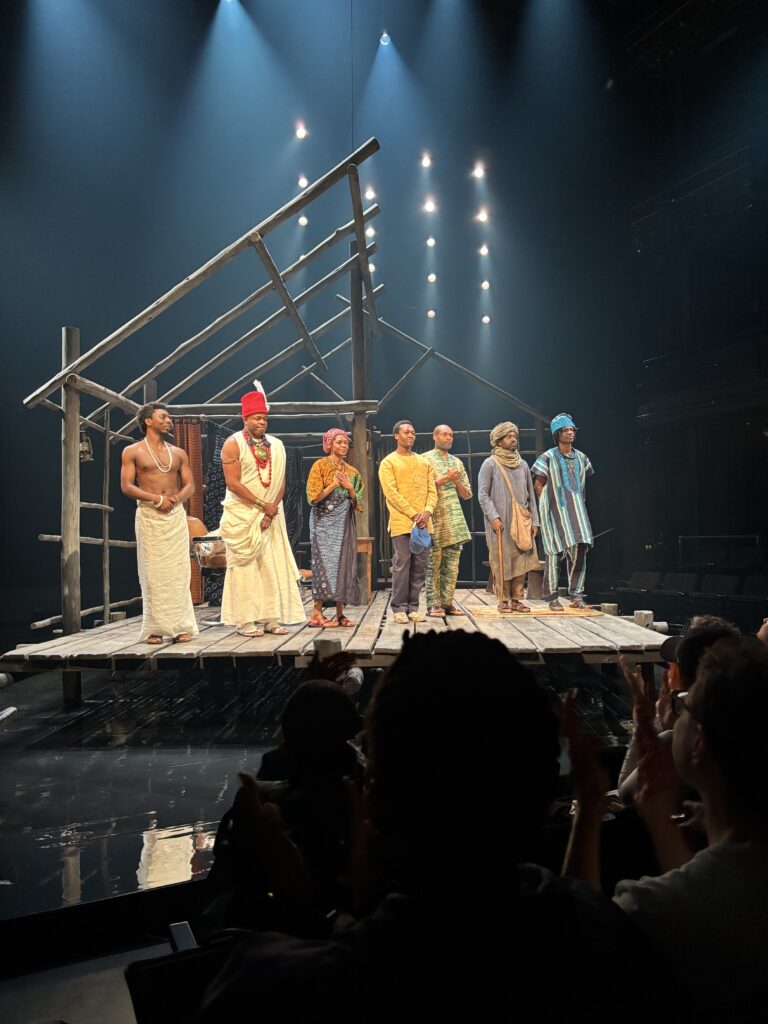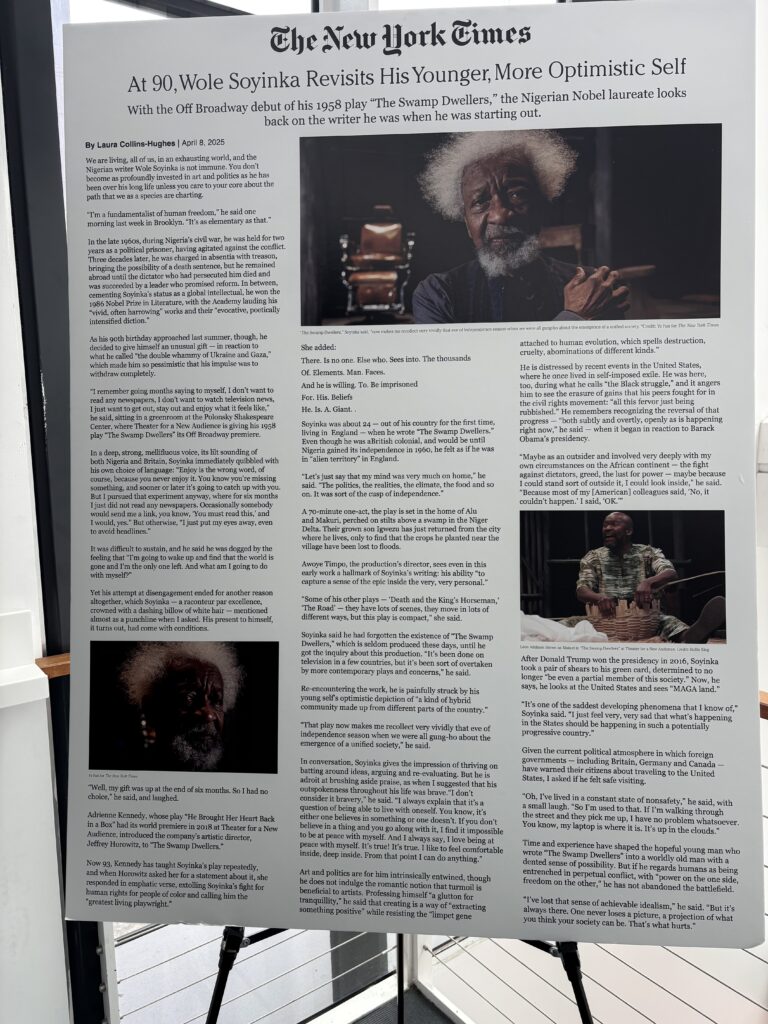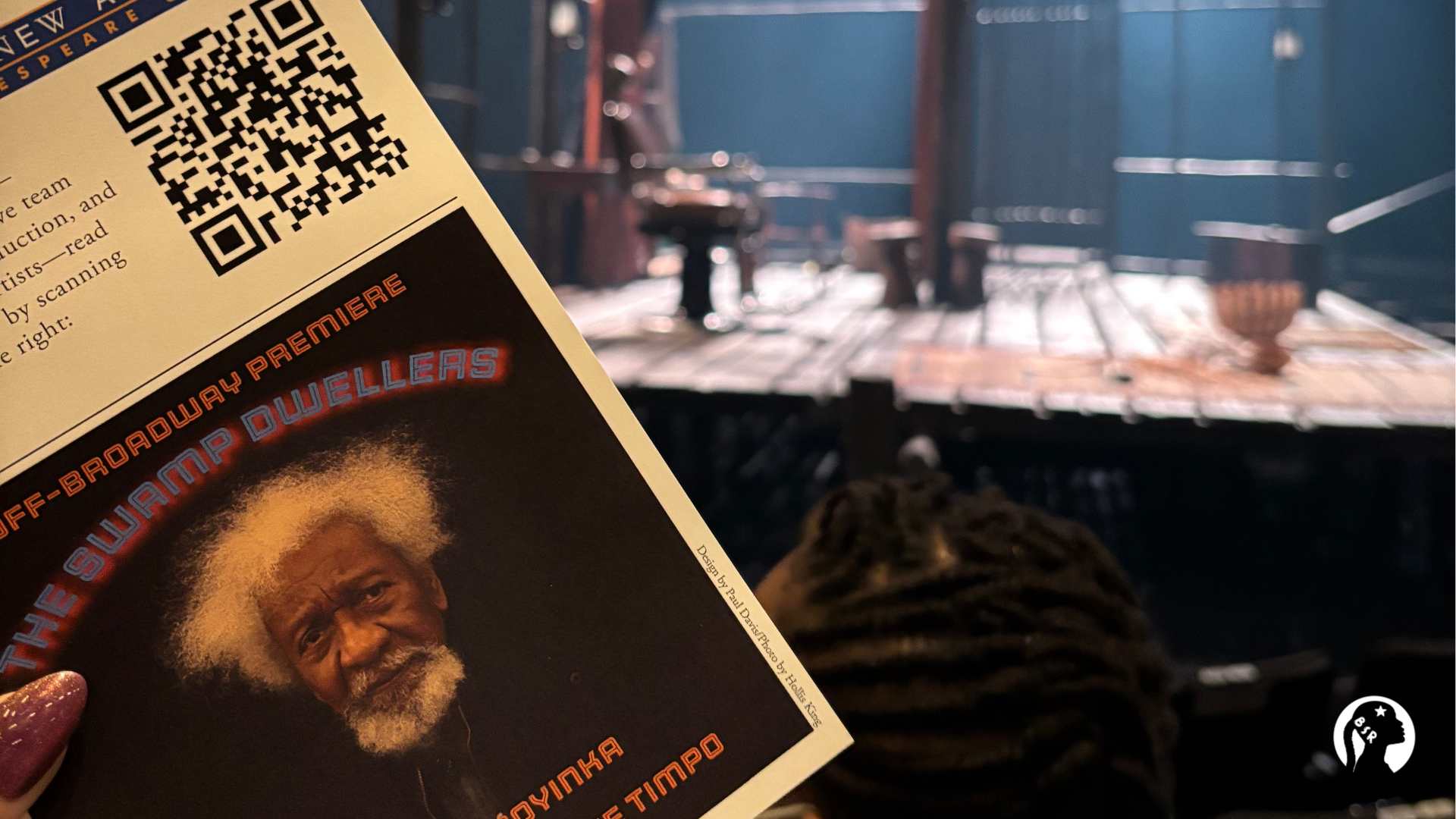
“The Swamp Dwellers” Review
This play, which is old enough to collect Social Security, doesn’t feel as timeless as Soyinka or his greatest hits.
The most in-demand DJs, the ones worth their salt, know the payoff that comes from spinning deep cuts: songs that defined a moment and were promptly forgotten, a guitar lick or sample that sets the baseline for a current ear worm, or just a cool, novel sound. These days, many DJs like Khaled or Mustard, are also producers who create their own tracks but in the early days, DJing was about making new sounds using records that already existed. This meant hours at the record store searching for vinyls to fortify your arsenal aka “digging in the crates”. This month, Theatre for A New Audience (TFANA) dusted off a script that was so deep in the crate it had never been seen on stage. The play, called The Swamp Dwellers, was overdue for its premiere by a long shot. It was written in 1958; today, the playwright Wole Soyinka, who was born in Nigeria, is 90 years old.
Speaking of birthdays: as proud as I am to have turned 33, I’m devastated to have aged out of TFANA’s New Deal which offers special discounts to people under 30. With a recession looming, I wonder if they’d consider extending the New Deal up to 35 or 40 since regular prices start at $95 and there is no ‘rush’ option. I saw the Saturday matinee performance during its one-week extension at the end of April. The theater uses a thrust stage, where the audience sits on three sides (front, left, right) and there’s an upper level as well. At my performance, there was no one on the left or right, no one in the upper level seating, and even the front section was less than half way full. It’s hard to know what’s stifling attendance: maybe it’s press, maybe it’s timing, maybe it’s pricing.
Times are hard in The Swamp Dwellers, too, and mercy is appreciated. The show begins with a barber and his wife in their home which sits on stilts above the marshes. They’re weaving baskets and fussing with each other, passing time while they wait for their son to return. The couple two son’s have both left the village to make names for themselves in the city, but the younger of the two is back to check on his crops. The story unfolds like the parables I grew up reading in Sunday school, but in this tale the prodigal son returns to loving arms and little else.
There is much to-do about these sons, mostly from their mother. She hasn’t heard from the oldest one and worries he is dead. She’s just seen the younger one before he headed down to his water-logged farm and she worries he is dead as well. Her husband, their father, tries to calm her down with jokes and distractions until the couple is interrupted. There is a blind man at the door and he has come a long way, all the way from the North.
The blind man is from a part of the country that is too dry to support crops. His people are known to be beggars since there is little they can do to support themselves without arable farmland. But this blind man is determined to work with his hands and he vowed to Allah to follow the river all the way to its end so that he may find land to farm. The couple tells him that there is no available land, all the land that does not belong to the Serpent is accounted for by villagers. The blind man tries to leave and walk on but the trio is interrupted, this time by the Serpent Priest.
The Priest arrives by drumbeat and with fanfare. He has come for a shave now that his vow has ended. He said he would not wash or cut his beard until the devastating rains stopped and now the clouds have gone. The barber offers to shave him, but the Priest asks to come back and be shaved by the son. The Priest is particularly interested in how much money the son has made in the city.
To his mother’s delight, the son returns from the farm. He’s surly and despondent. Thanks to the endless rains he will have no harvest this season. He feels there’s nothing for him in the city and now there is nothing for him at home.
The Priest returns for his shave at an inopportune time, the son is in the middle of a tirade but quietly changes his tune while he seats the Priest in the barber chair. Once he has the the Priest’s head in his hands he holds a razor to his neck. “Why are you fat?” he demands.
It’s almost biblical, the way the son presses the razor against the neck of this fatted calf. He’s trying to make sense of his circumstance. He’s said his prayers, he’s offered his sacrifices, he’s done everything the Priest has asked to satisfy the serpent and still, he’s lost everything. He’s convinced that the Priest’s heft is a tell-tale sign that the Priest has been keeping everyone’s sacrifices for himself, angering the Serpent. In his mind, this affront has unleashed the Serpent’s wrath, washing out their crops with endless rains.
It’s a one-act play, only slightly longer than an episode of a TV crime procedural and when the lights darken to signal the end of the show there are more than enough threads to weave together another chapter of these characters’ stories. In an article that’s printed out on a poster in the theatre lobby, Mr. Soyinka told the New York Times that this play comes from a time in his life when he was more optimistic.
If blind men on fruitless journeys, avowed fratricide, barren fields, and aggressively close shaves are Mr. Soyinka at his sunniest, he’s seen some unforgiving things in his long lifetime. He’s aged gracefully, still political and informed, but wise enough to see the writing on the wall in the earliest moments. The Times interview says he predicted our country’s “reversal of [Civil Rights] progress” when President Obama was elected in 2008. When the 45th President was elected eight years later, he cut up his green card.
There is no time more fitting than now to perform some of Soyinka’s more political works: ones that were produced while he was incarcerated as a political prisoner during Nigeria’s civil war, or the plays he’s written about dictatorship and detention. Soyinka has won a number of distinctions for his books and stage plays, even a Nobel Prize in Literature in 1986. This play, which is old enough to collect Social Security, doesn’t feel as timeless as Soyinka or his greatest hits. While I appreciate the effort that went into digging this out, we can put The Swamp Dwellers back in the crate, and free up the turntable for a harder-hitting sound.
blacklove 🖤 and starlight 🌟
The Off-Broadway premiere of The Swamp Dwellers by Wole Soyinka was produced by Theatre for a New Audience at the Polonsky Shakespeare Center in Brooklyn. This production opened on March 30th, 2025 and closed on April 27, 2025 after a 1-week extension. It was directed by Awoye Timpo and starred Ato Blankson-Wood, Joshua Echebiri, Benton Greene, Jenny Jules, and Chiké Okonkwo.
- The cast of “The Swamp Dwellers” take a bow.
- An NYT article about Wole Soyinka was printed on a poster in the lobby for the audience to read.


